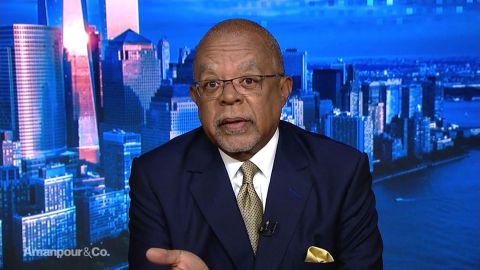Read Transcript EXPAND
CHRISTIANE AMANPOUR: So I wonder why you chose to focus on this era. There was only 12 years long, or, you know, up to about 12 years. I mean we know about slavery, the Civil War, civil rights and a backlash. Why Reconstruction now?
HENRY LOUIS GATES JR., AUTHOR, “STONY THE ROAD”: Well, let me put it this way, Christiane. Twelve years of black freedom between 1865 and 1877 followed by an alt-right rollback with the president immediately following the Civil War who refused to renounce white supremacy. Oh, and a conservative Supreme Court that declared the Civil Rights Movement of 1875 unconstitutional in 1883. Does this ring any bells?
AMANPOUR: Are you saying there are some parallels to today?
GATES: Oh, my goodness, I’d never say that. Yes, of course. This is the mirror. And I realized this when I began to realize it when the horrible murders at Mother Emmanuel Church, in Charleston, South Carolina, you remember Dylann Roof —
AMANPOUR: I do.
GATES: — murdered Reverend Clementa Pinckney and the other innocents at the prayer meeting. And the reasons that he cited were all tropes, rhetoric from the white supremacist movement that arose after the Civil War in reaction to reconstruction. Two thousand black men were elected to office during reconstruction. Sixteen black congressmen, including two black senators, were elected in that 12-year period. And the majority of the House of Representatives in the state of South Carolina, majority black. There were three black states, majority black states in the United States at that time, South Carolina, Louisiana and Mississippi. And this was just too much to bear and as the saying goes, the south rose again. And with the complicity of a conservative Supreme Court, they rolled back all those rights.
AMANPOUR: So I want to get some — get into more detail about the rollback. But first, I want to know from you the history of the accomplishment of those who were emancipated and had their rights during reconstruction. What were they able to do? Mostly black men, right, because they were the ones getting their rights.
GATES: It was a glorious period. It was the most exciting period, obviously, in the history of black people in the United States. Because in 1867, black men in 10 of the 11 former Confederate states because of the reconstruction military acts got the right to vote. Christiane, 80 percent of the black men eligible to vote in the former confederacy registered to vote, 80 percent of the black men eligible to vote in the former Confederacy, register to vote, 80 percent. And in 1868, 500,000 of them voted for the presidential candidate Ulysses S. Grant. Grant only won by 300,000 votes. So effectively, black men had elected a white man the president of the United States, and they did the same thing for Grant in 1872.
About This Episode EXPAND
Christiane Amanpour speaks with iconic editor-in-chief of Vogue, Anna Wintour; and historian Henry Louis Gates, Jr. Michel Martin speaks to Mississippi author Kiese Laymon about his poignant memoir “Heavy.”
LEARN MORE


